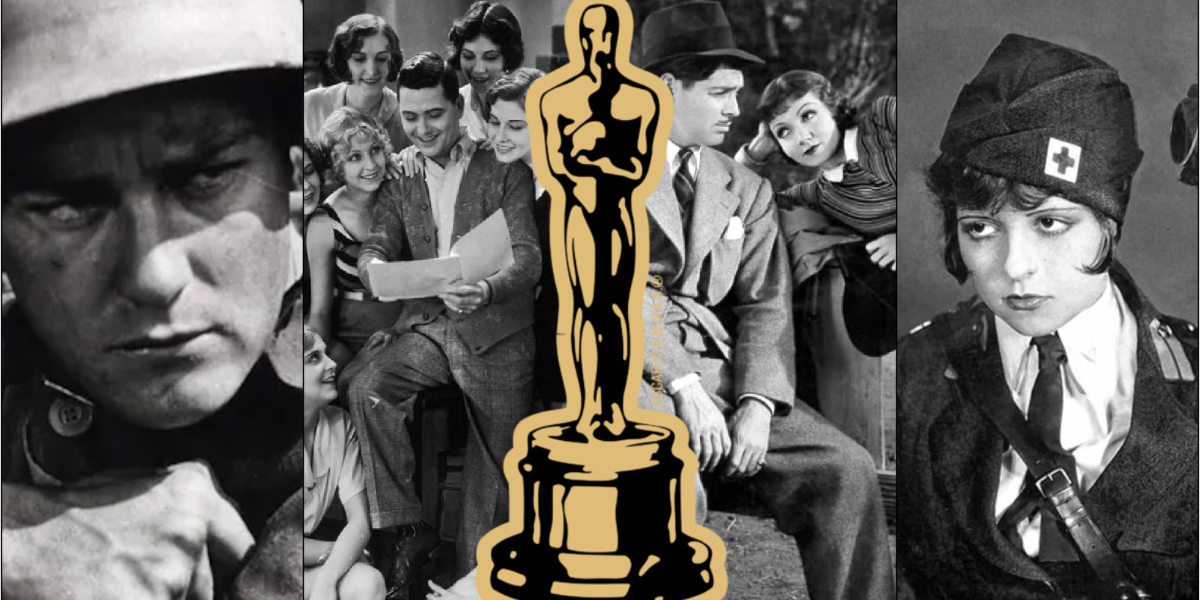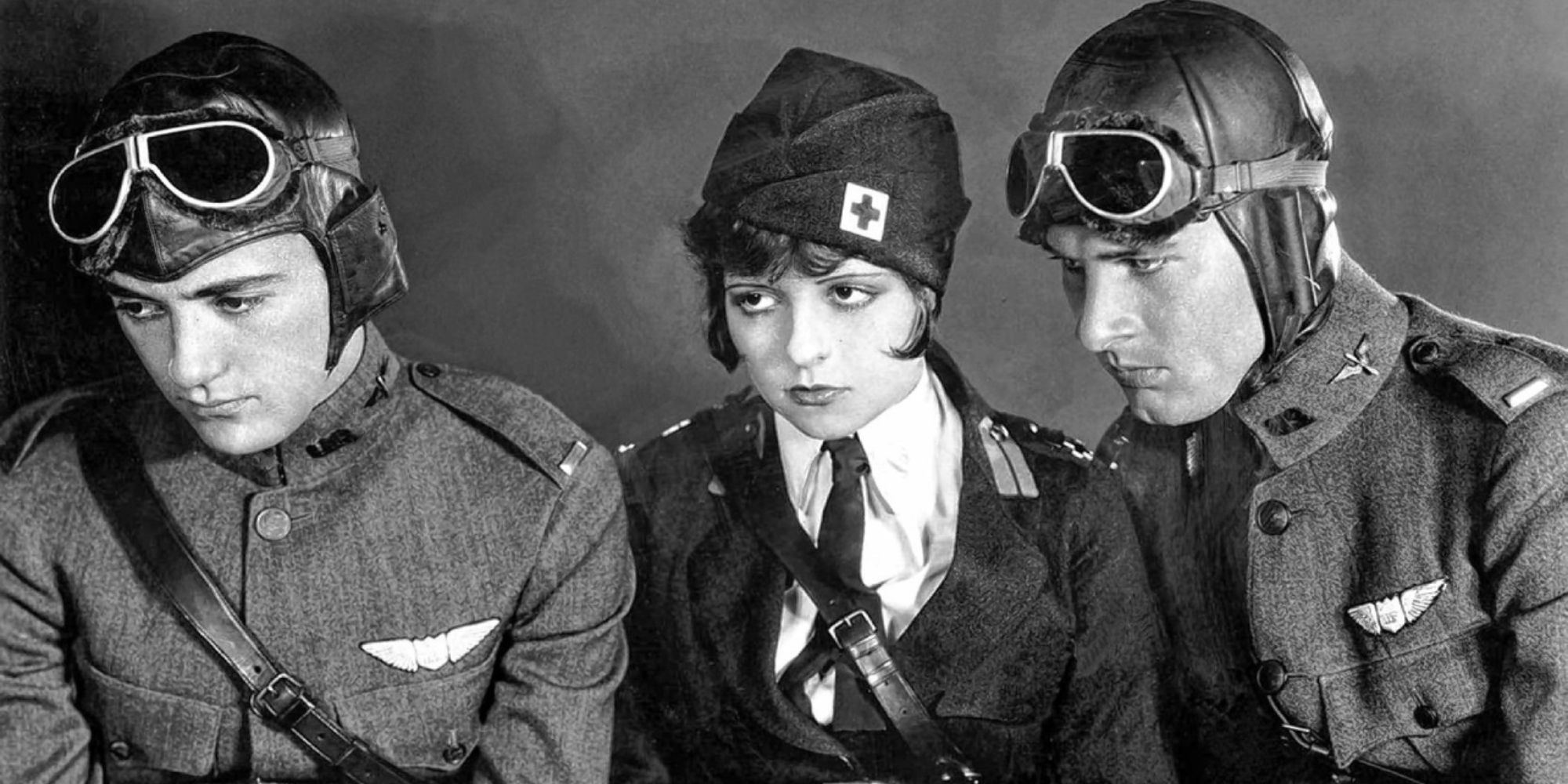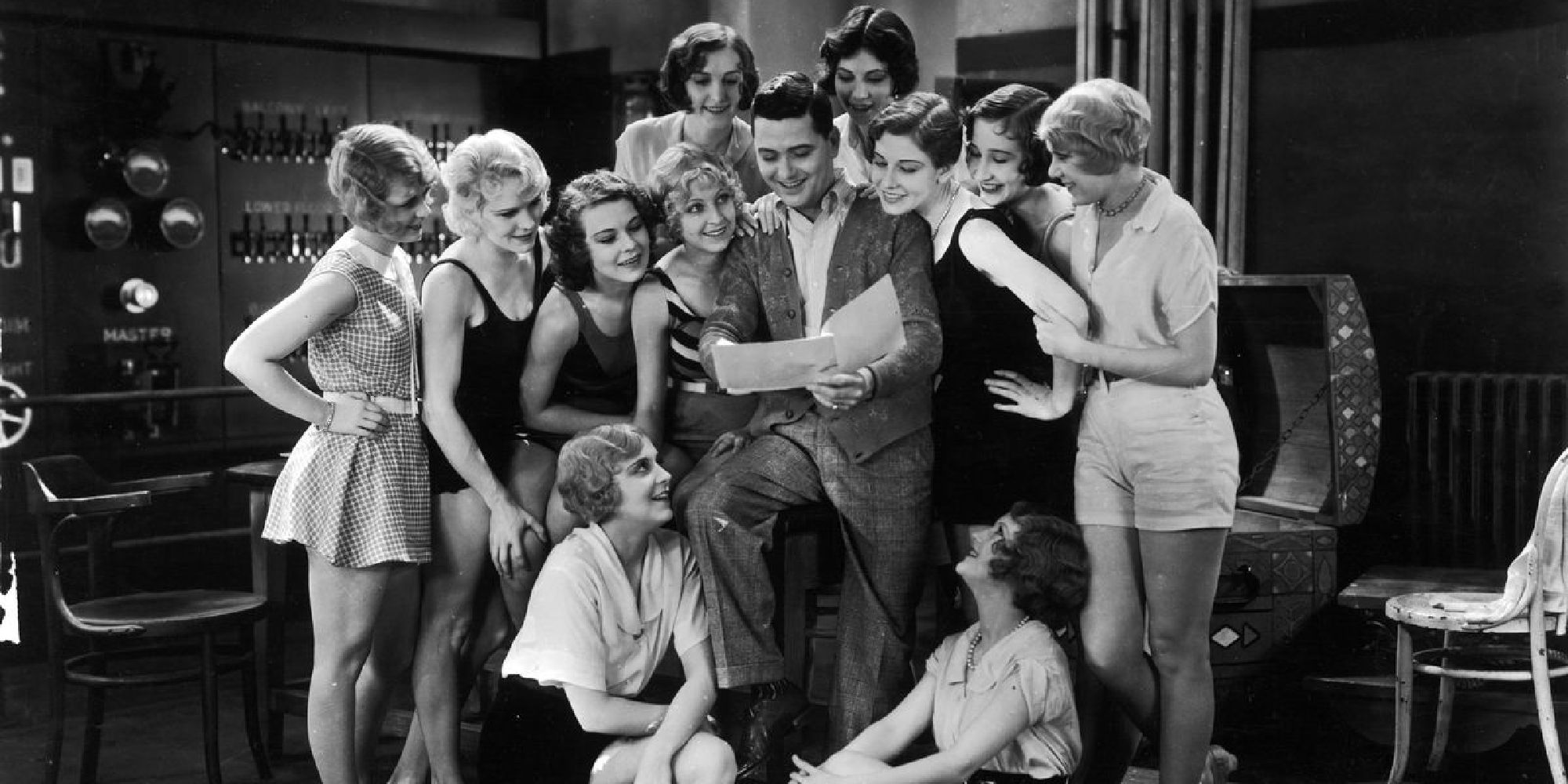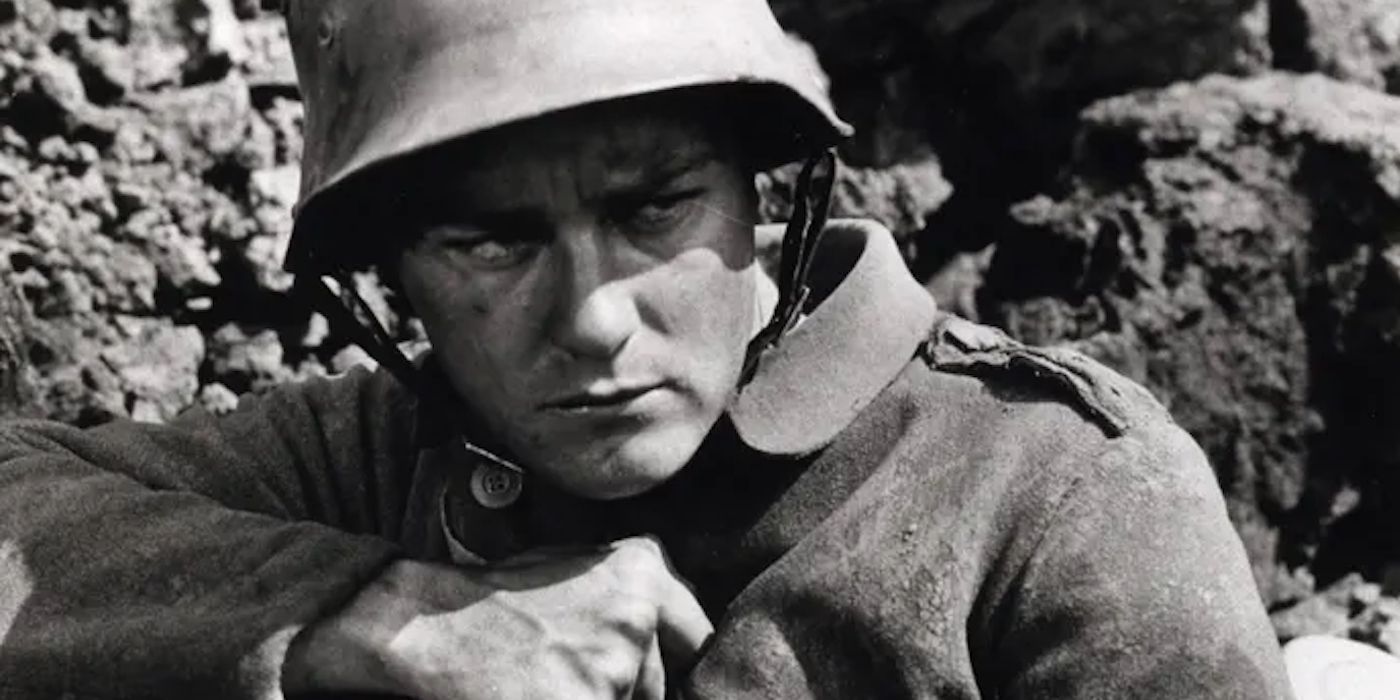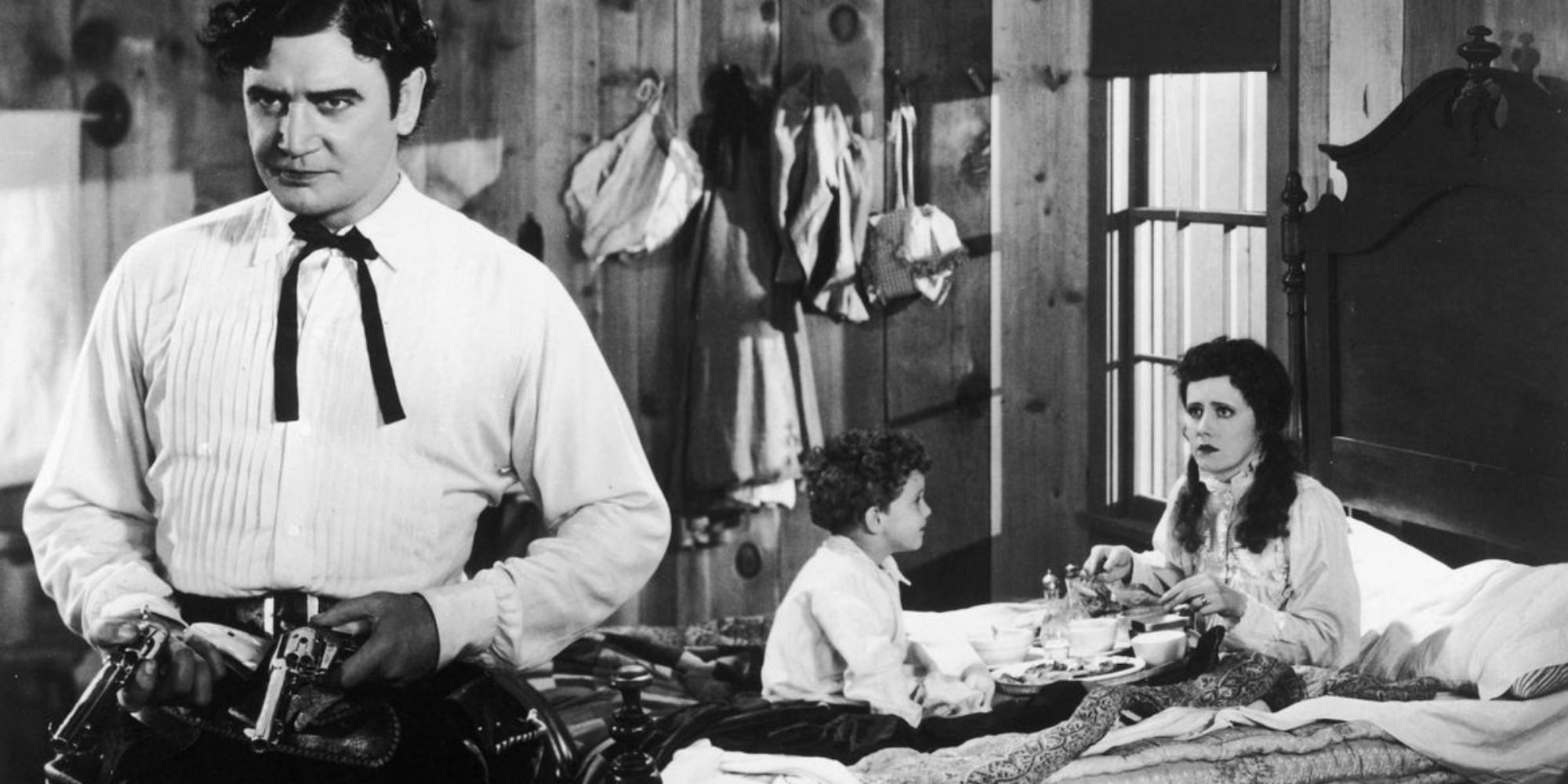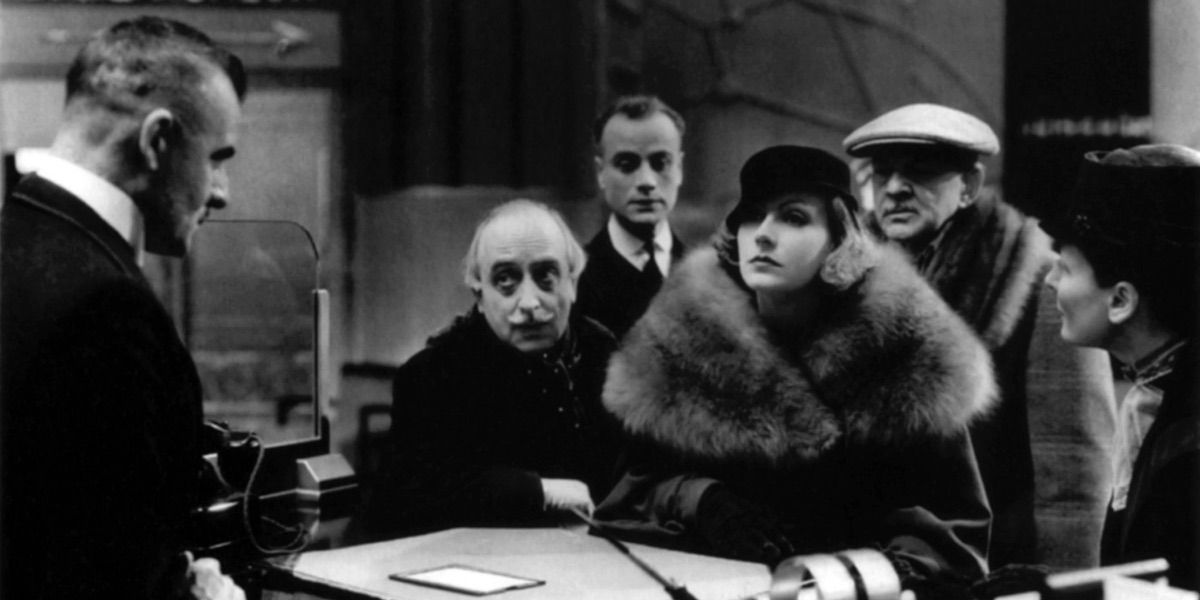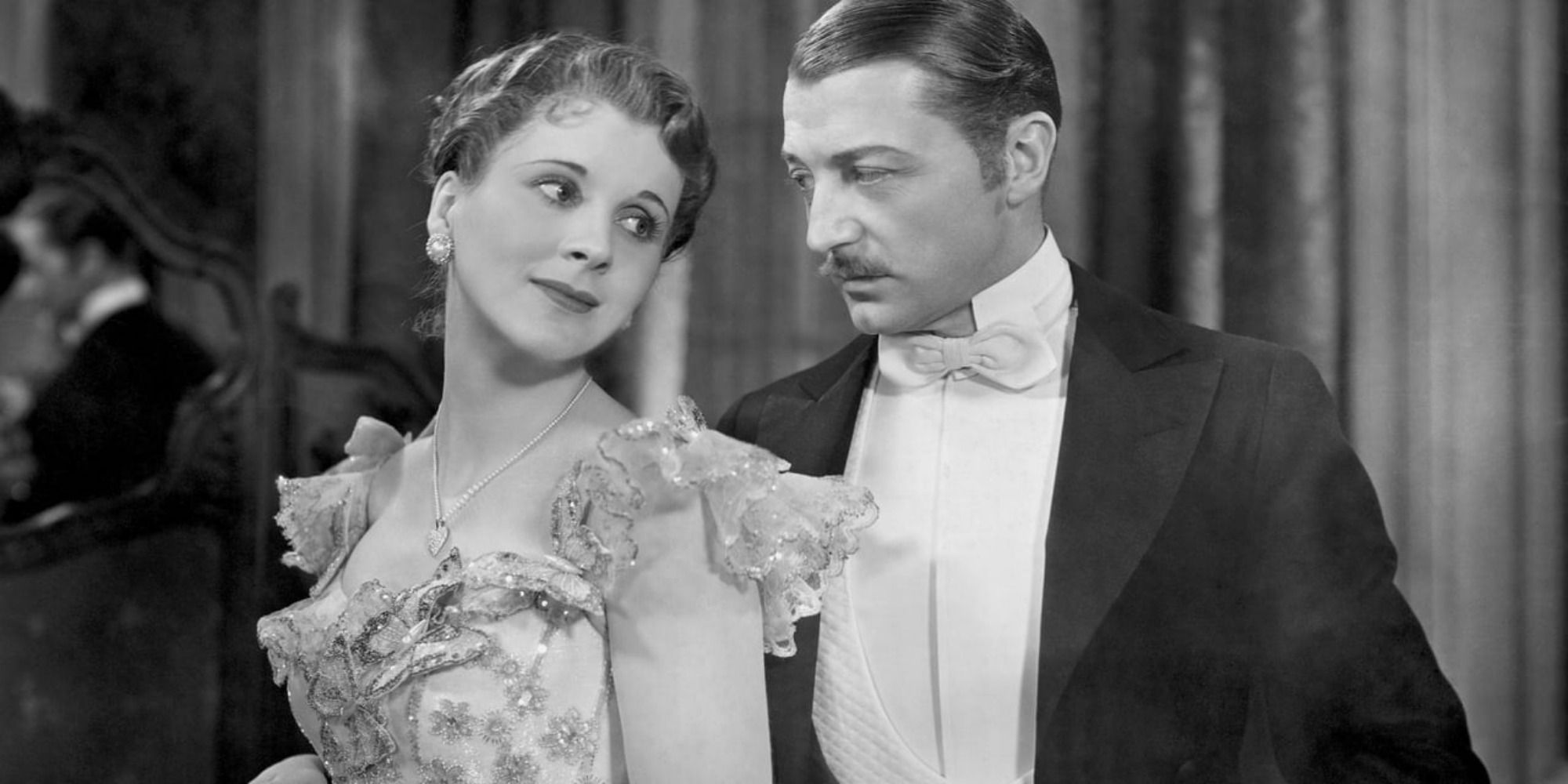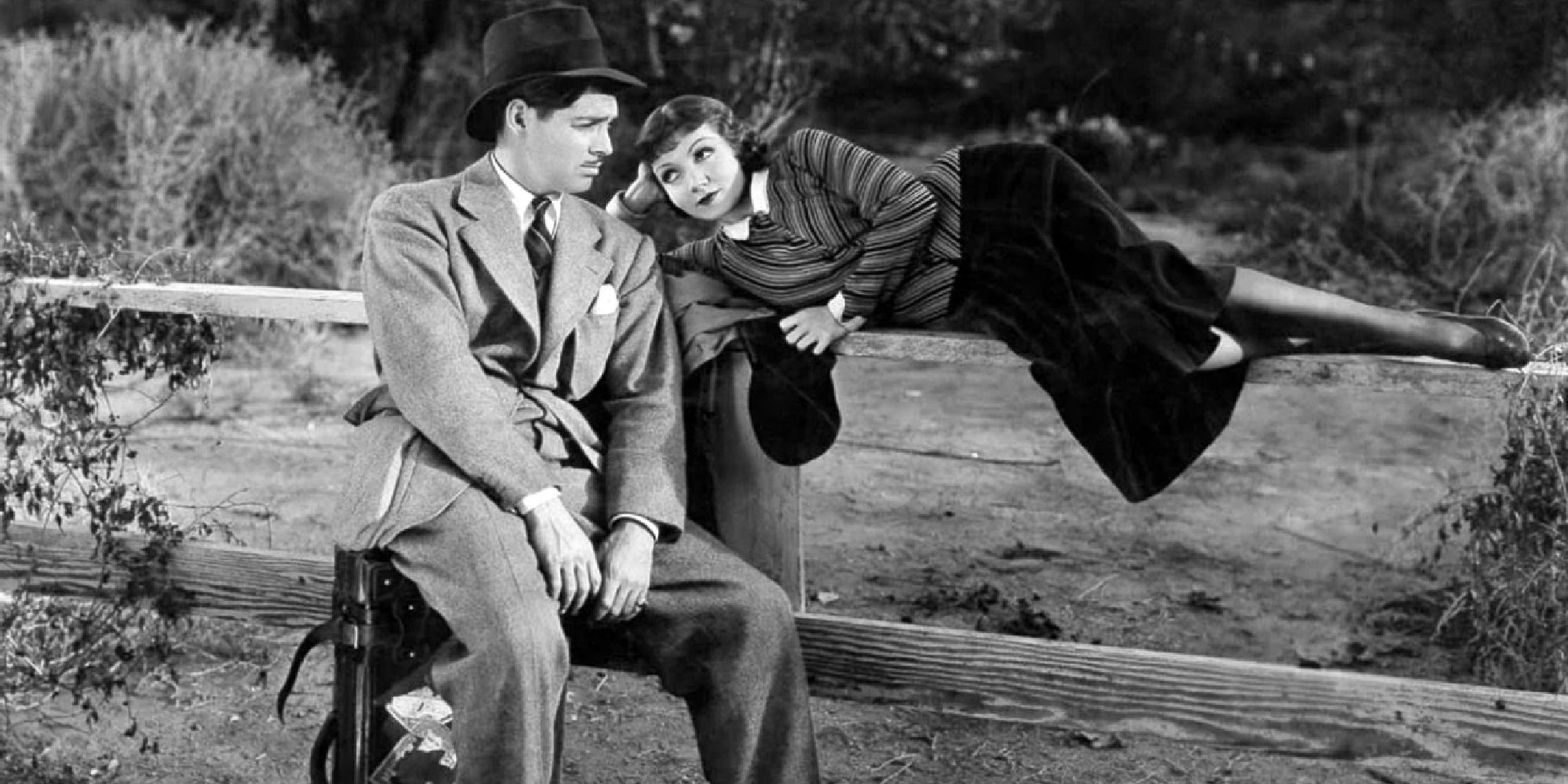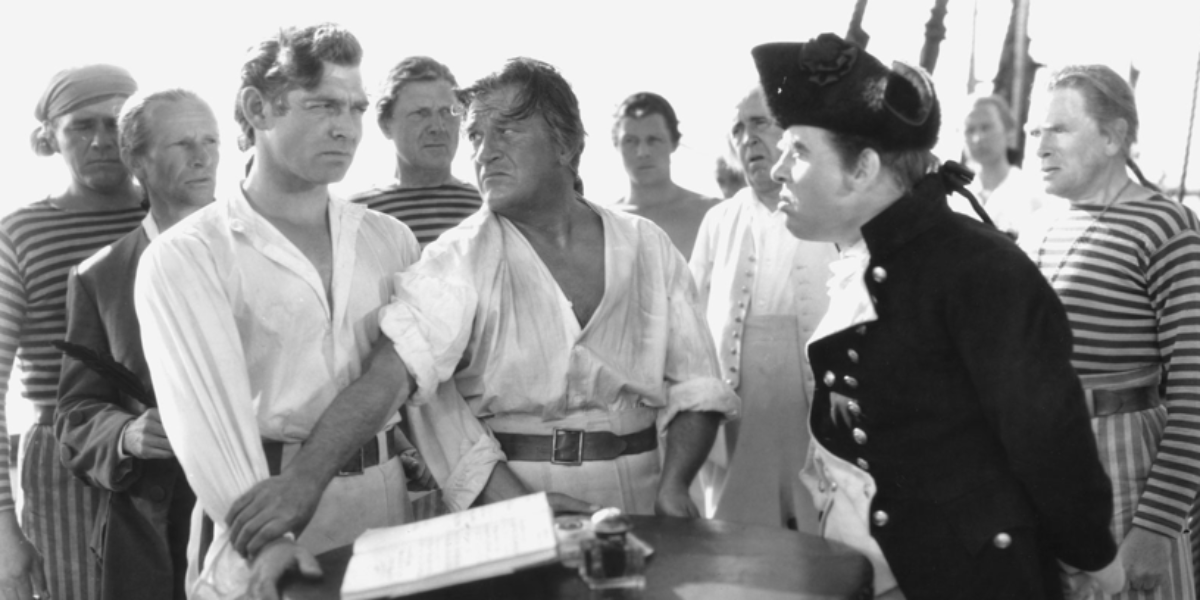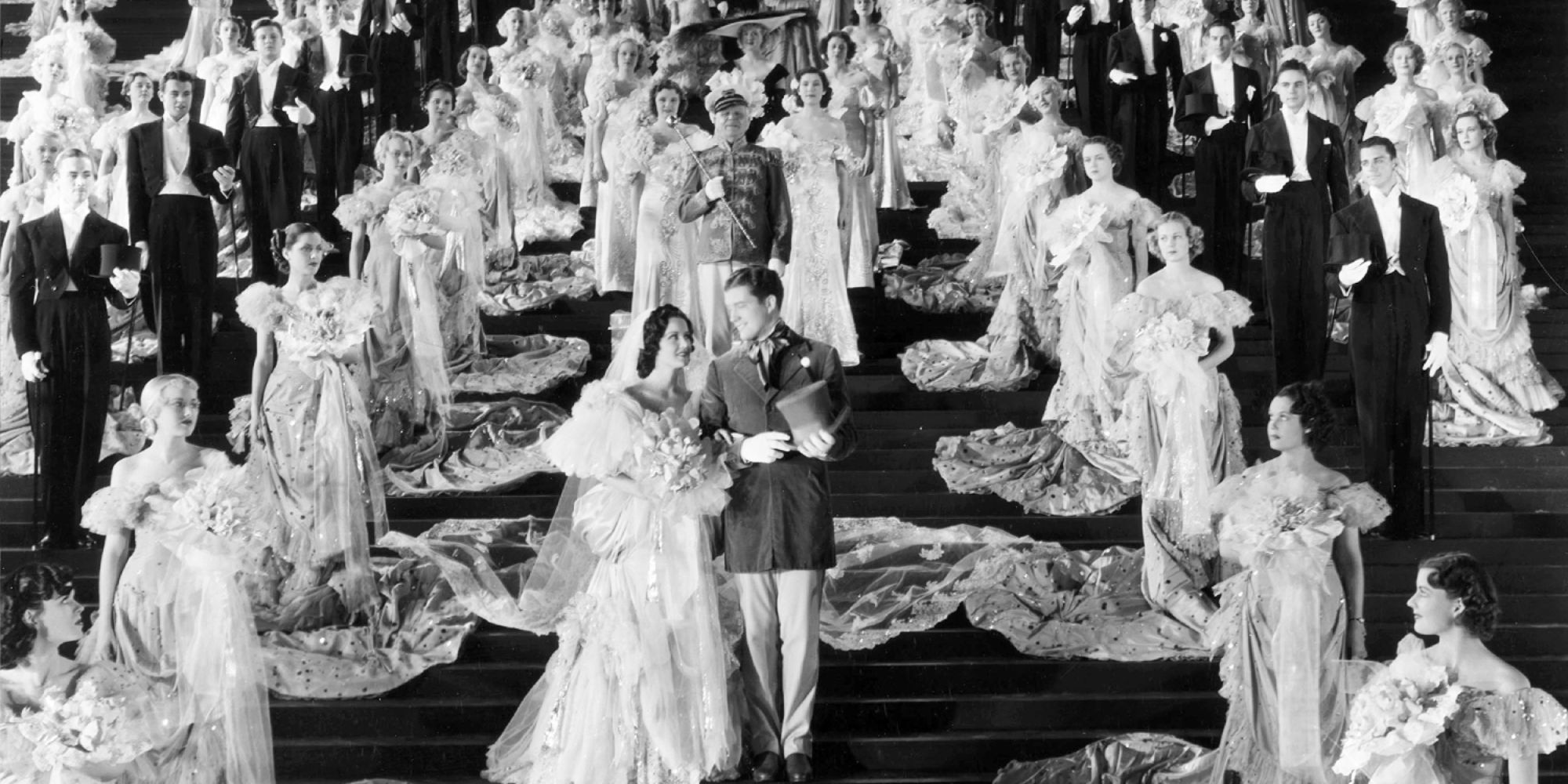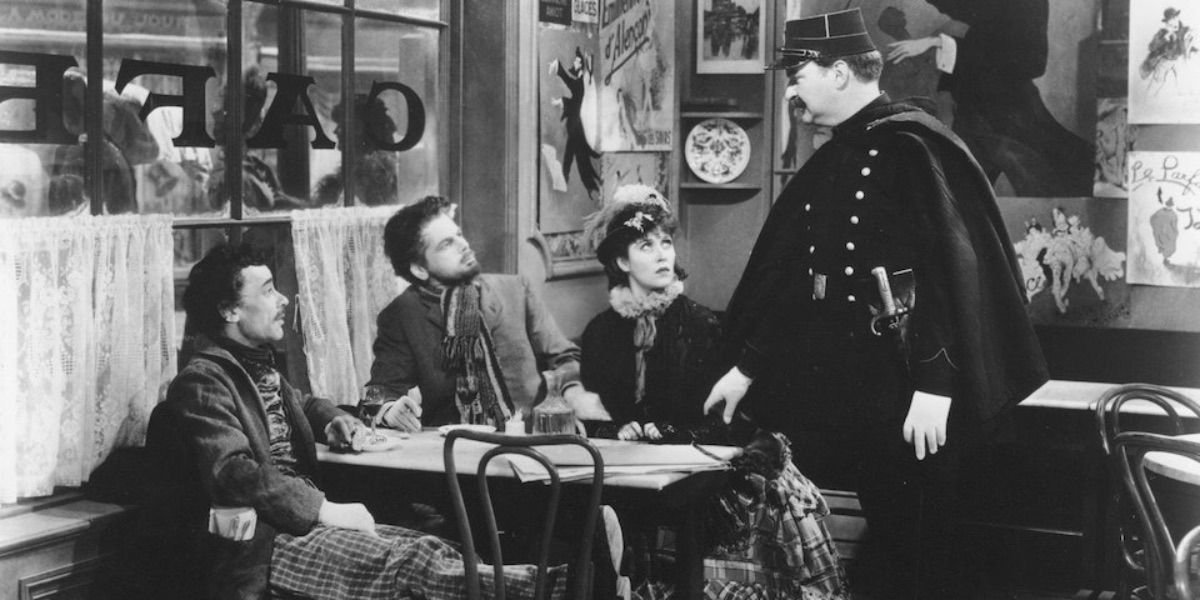The 95th Academy Awards are fast approaching, bringing a flurry of worthy candidates across their vast twenty-four nomination categories. Fans gather to celebrate awards seasons every year, praising recent Best Picture winners such Coda, Parasite, and Moonlight, but they shouldn't forget those from the very beginning of the Academy Awards.
The award for Best Picture has been around since the Academy's creation, way back when there were only thirteen categories. The Academy's first decade is worth noting for its implementation of the golden standard of filmmaking, and for understanding how the organization grew to such cultural prominence today.
1 'Wings' (1927)
Before the words "Best Picture" were paired together, this category was titled "Best Production" or "Outstanding Picture." Wings, a tale of two WWI fighter pilots in love with the same woman, won the Academy's very first award for best film of the year. The film spans two hours and twenty-four minutes, and is one of the last silent films ever produced.
Wings was directed by William A. Wellman, whose still recognized today for his work on the original A Star is Born in 1937, which earned him a Best Writing/Original Story Oscar. For nearly eighty years, Wings was the only silent film to ever win an Oscar until The Artist (2011), and was also the first movie to film actors flying in real-life airplanes.
2 'The Broadway Melody' (1929)
Although losing out on nominations for Best Actress and Best Director, The Broadway Melody won the Academy's second ever Best Picture win in 1930. This rags-to-riches tale depicts two sisters, their rise to Broadway stardom, love triangles, and the sacrifices they make for fame.
The Broadway Melody was Hollywood's first musical of the likes still made today. Before Melody, musicals were typically simple recordings of stage performances, but director Harry Beaumont decided to mix traditional filmmaking with interspersed musical numbers, which undoubtedly won this film the Oscar for Best Picture.
3 'All Quiet On The Western Front' (1930)
Remade twice since this original iteration, All Quiet On The Western Front earned itself two Oscar wins in Best Picture and Best Director for Lewis Milestone. The film is based on the novel by Erich Maria Remarque, depicting young German soldiers who are affronted by the disillusionment of war and the tragedies it places on everyone involved.
Ironically, this 1930 adaptation was banned in Germany despite the author of the source material being German himself, and many of the screenings in Europe were antagonized by a growing Nazi population. The novel was adapted a second time in 1979 and once again in 2022, which is one of the best book-to-film adaptations and has officially been nominated for Best Picture in the 2023 Academy Awards.
4 'Cimarron' (1931)
This film about the western expansion in Oklahoma was nominated for seven Oscars, taking home three of them in Best Picture, Best Writing (Adapted) and Best Art Direction. When newspaper editor Yancey Cravat (Richard Dix) moves his family west, his relationship with wife Sabra (Irene Dunne) crumbles as the two take on new responsibilities in a new land.
Cimarron was the first western genre film to win Best Picture, and it was the first film to achieve a nomination in nearly every category; appearing in seven out of nine. Although swimming in acclaim, Cimarron drowned financially, only to break even in 1941, ten years after its initial release. It's one of the best western movies from before the '50s.
5 'Grand Hotel' (1932)
Fans of Agatha Christie and The White Lotus will find Grand Hotel to be an essential ensemble flick. The film follows various individual hotel guests during their stay at one of Berlin's cushiest hotels, each of their personal issues unfurling in a dramatic series of events.
Cinephiles may recognize director Edmund Goulding for his work on Nightmare Alley (1947) which was remade by Guillermo del Toro in 2021. The film notably stars actor John Barrymore as Baron Felix von Geigern, whose Hollywood royalty would pass down to his granddaughter and actress Drew Barrymore (Charlie's Angels, 50 First Dates).
6 'Cavalcade' (1933)
By definition, "cavalcade" is the procession people moving forward, which is the thematic root of this Frank Lloyd directed piece. The story follows a prominent English family and their lives across thirty years of history and tragedy, juxtaposed with a working-class family's perception of the same three decades.
Cavalcade won three of its five Oscar nominations, taking home Best Picture, Best Director, and Best Art Direction. The historic events depicted in its near two-hour runtime include the sinking of the Titanic, the death of Queen Victoria, and World War I. It remains one of the most accurate on-screen adaptations of a stage play.
7 'It Happened One Night' (1934)
Frank Capra, the same mind behind It's a Wonderful Life and Mr. Smith Goes To Washington, delivered It Happened One Night with acclaim in 1934. This road-trip turned love story took home awards for Best Picture, Best Actor, Best Actress, Best Director, and Best Writing (adapted).
Ellie Andrews (Claudette Colbert) is an heiress fleeing to New York when she encounters struggling journalist Peter Warne (Clark Gable). What begins as an amiable agreement soon transforms into true love, a story that wooed the Academy so much it became the first film ever to win all top five nomination categories. It's a film surely to inspire your next road trip.
8 'Mutiny on the Bounty' (1935)
Based on a real-life revolt, Mutiny on the Bounty portrays the removal of the tyrannical Captain Bligh (Charles Laughton) at the hands of first mate Fletcher (Clark Gable) and a sailor (Franchot Tone). This was Frank Lloyd's second film to win Best Picture, following Cavalcade two years prior.
The film is fun for its adventurous tone, but also signifies a growth within the Academy. All three leading men in the film (Laughton, Gable, and Tone) were nominated for Best Actor, which prompted the Academy to add the category of Best Supporting Actor in years to come. Fun fact: the film had to be shot a second time when they discovered much of the film stock destroyed due to light exposure.
9 'The Great Ziegfeld' (1936)
Made just six years after his passing, The Great Ziegfeld is a biographical picture depicting the rise and fall of Broadway producer Florenz Ziegfeld Jr. The man was a notorious conniver with a reputation for failure, adultery, and competitive spirit within the world show business. His dramatic life story earned this film three Oscars for Best Picture, Best Actress, and Best Dance Direction.
The film is among a mere eleven musicals to win Best Picture in the Academy's ninety-five-year history, and was director Robert Z. Leonard's first win (yet second nomination) for the award. Judy Garland was originally supposed to appear in the film with her sisters, but was dropped, only to be signed to Metro-Goldwyn-Mayer soon after.
10 'The Life of Emile Zola' (1937)
Yet another exciting and entertaining biopic, The Life of Emile Zola is the astonishing tale of French Captain Alfred Dreyfus' false imprisonment, and writer Emile Zola's efforts to prove Dreyfus' innocence at the expense of his own freedom. Dreyfus, accused of committing treason to aid Germany, was never released from prison despite later evidence pointing toward his innocence.
In addition to Best Picture, Joseph Schildkraut won Best Supporting Actor for his performance as Dreyfus, followed by a win in Best Screenplay. With much dismay, the film was under the shadow of World War II, and Dreyfus' Jewish ancestry was omitted from the film despite his ethnicity being a prominent factor in his trial.

